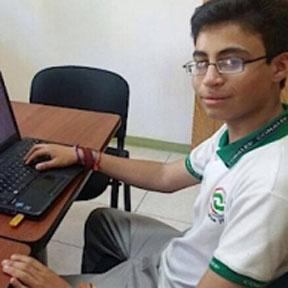
Un Católico Vota Así
A Catholic Votes Like This
“La democracia no se sustenta sin la verdad. Verdad y libertad, o bien van juntas o juntas perecen miserablemente.” -Juan Pablo II
La Iglesia católica no tiene partido. Como institución, la Iglesia acoge a todos los bautizados y no apoya a ningún partido político; más aún, acepta que una misma fe puede inspirar opciones políticas diversas. La jerarquía de la Iglesia, es decir, los diáconos, presbíteros y obispos, no pueden afiliarse a ningún partido político, ni apoyar públicamente a un candidato en particular, pero es su derecho y deber proponer los principios morales que deben regir el orden social y, en privado, votar por quien quieran.
Los fieles católicos están obligados a ser coherentes con su fe en público y en privado; no pueden, por tanto, sin traicionarse a sí mismos, adherirse o votar por un partido o por un candidato contrario a sus convicciones religiosas y a sus exigencias morales.
POR TANTO,
UN CATÓLICO
NO PUEDE NI DEBE
VOTAR POR:
Un partido o por un candidato que esté en contra del respeto absoluto que se debe a la vida humana desde la concepción hasta su desenlace natural, como serían los que propician el aborto, la eutanasia o la manipulación de los embriones.
Un partido o por un candidato que no respete la dignidad de la persona humana, como serían los que defienden o promueven la prostitución, las uniones homosexuales o lesbianas, los anticonceptivos físicos o químicos, la pornografía especialmente la infantil, la clonación humana, el uso o tráfico de drogas, la venta indiscriminada de alcohol, el machismo, la discriminación étnica y racial.
Un partido o por un candidato que no respete el derecho primario de todo hombre o mujer a practicar, en privado o en público, individualmente o en grupo, sus creencias religiosas; o que obstaculice de cualquier manera la enseñanza de la religión, prohíba las manifestaciones públicas de fe o se oponga a la instalación de los lugares para el culto que pida la comunidad.
Un partido o por un candidato que se oponga o niegue el derecho inalienable de los padres de familia a escoger el tipo de educación que, de acuerdo con sus convicciones, quieran para sus hijos.
Un partido o por un candidato que no le garantice, con certeza moral, que utilizará honestamente los dineros y bienes públicos; que va a cumplir lo que promete; que buscará el bien común y no el provecho propio y de sus colaboradores.
Un partido o por un candidato que no se comprometa a promover la dignidad de la familia fundada sobre el matrimonio monogámico entre personas de opuesto sexo; a combatir la violencia, la drogadicción, la injusticia institucionalizada, la corrupción pública y que no haga propuestas creíbles en favor de los más necesitados.
UN CATÓLICO DEBE
VOTAR PREFERENTEMENTE POR:
Un candidato que respalde con su ejemplo las virtudes humanas y cristianas como son el respeto a los demás, el saber escuchar, el diálogo, el decir la verdad, la honestidad, la vida morigerada, la fidelidad conyugal y el amor a su familia.
Un candidato que demuestre con hechos su espíritu de servicio a los demás, con especial preferencia hacia los pobres y que en todo y sobre todo defienda la dignidad de la persona humana.
Un candidato que tenga cualidades de gobierno y que garantice la vigencia del estado de derecho mediante la aplicación de la ley, sin excepción de personas o de cargos.
UN CATÓLICO
SABE QUE:
Si bien la democracia no se agota en el proceso electoral, su fe lo compromete a colaborar en el bien del país emitiendo su voto libre, secreto, personal e informado. El abstencionismo (no votar) es un pecado de omisión.
Está obligado a conocer los principios morales y la doctrina de los partidos y candidatos y a no dejarse manipular. Es pecado grave comprar o vender votos y colaborar de cualquier manera en un fraude electoral.
Debe conocer su fe y formar su conciencia de acuerdo con las enseñanzas de la Iglesia y de la moral católica, y emitir su voto pensando en el bien común y no según intereses personales o de partido.
Si no encuentra un partido o candidato que concuerde con sus principios religiosos y morales, debe votar, según su juicio y en conciencia, por el menos malo.
Debe brindar a las instituciones ciudadanas que participan y cuidan de los procesos democráticos su respeto y apoyo. La democracia es un bien que todos debemos proteger.
Por tanto, un católico que vota según estos principios está contribuyendo a la maduración de un auténtico estado laico y democrático. (Extracto de la instrucción pastoral de Monseñor Mario De Gasperin Gasperin, Obispo jubilado de Querétaro, México.)
“Democracy is not supported without the truth. Truth and freedom either go together or together perish miserably.” -John Paul II
The Catholic Church has no party. As an institution, the Church welcomes all the baptized and does not support any political party; Moreover, it accepts that the same faith can inspire diverse political choices. The hierarchy of the Church, that is, deacons, priests and bishops, cannot join any political party, nor publicly support a particular candidate, but it is their right and duty to propose the moral principles that should govern the social order and, in private, vote for whomever they want.
Catholic faithful are obliged to be consistent with their faith in public and private; they cannot, therefore, without betraying themselves, join or vote for a party or for a candidate contrary to their religious convictions and moral demands.
THEREFORE, A CATHOLIC CANNOT AND MUST NOT VOTE FOR:
A party or a candidate who is against the absolute respect due to human life from conception to its natural death, such as those that lead to abortion, euthanasia, or the manipulation of embryos.
A party or a candidate who does not respect the dignity of the human person, such as those who defend or promote prostitution, gay or lesbian unions, physical or chemical contraceptives, pornography especially child pornography, human cloning, drug use or trafficking, indiscriminate sale of alcohol, machismo, racial discrimination and ethnicity.
A party or a candidate who does not respect the primary right of every man or woman to practice, in private or in public, individually or in a group, his religious beliefs; or who in any way impedes the teaching of religion, prohibits public manifestations of faith or opposes the installation of places for worship requested by the community.
A party or a candidate who opposes or denies the inalienable right of parents to choose the type of education they want for their children.
A party or a candidate who does not guarantee him, with moral certainty, that he will use honestly public money and goods; that he will fulfill what he promises; that he will seek the common good and not the benefit of his own and his collaborators.
A party or a candidate who does not commit to promoting the dignity of the family founded on monogamous marriage among people of the opposite sex; to combat violence, drug addiction, institutionalized injustice, public corruption and not to make credible proposals for those most in need.
A CATHOLIC SHOULD PREFERABLY VOTE FOR:
A candidate who supports by his example human and Christian virtues such as respect for others, listening, dialogue, telling truth, honesty, dying life, marital fidelity, and love for his family.
A candidate who demonstrates with facts his spirit of service to others, with special preference to the poor and who in whole and foremost defends the dignity of the human person.
A candidate who has governance qualities and who guarantees the validity of the rule of law through law enforcement, without exception of persons or charges.
A CATHOLIC
KNOWS THAT:
While democracy is not exhausted in the electoral process, his faith commits him to collaborate in the good of the country by casting his free, secret, personal and informed vote. Abstentionism (not voting) is a sin of omission.
He is obliged to know the moral principles and doctrine of parties and candidates and not to be manipulated. It is a grave sin to buy or sell votes and to collaborate in any way in electoral fraud.
He must know his faith and form his conscience according to the teachings of the Church and Catholic morals and cast his vow with the common good in mind and not according to personal or party interests.
If it does not find a party or candidate that is consistent with its religious and moral principles, it must vote, according to your judgment and conscience, for the least bad.
It must give citizen institutions that participate and take care of democratic processes their respect and support. Democracy is a good that we must all protect.
Therefore, a Catholic who votes according to these principles is contributing to the maturation of a genuine secular and democratic state. (Excerpt from the pastoral instruction of Monsignor Mario De Gasperin Gasperin, Retired Bishop of Querétaro,Mexico.)
























